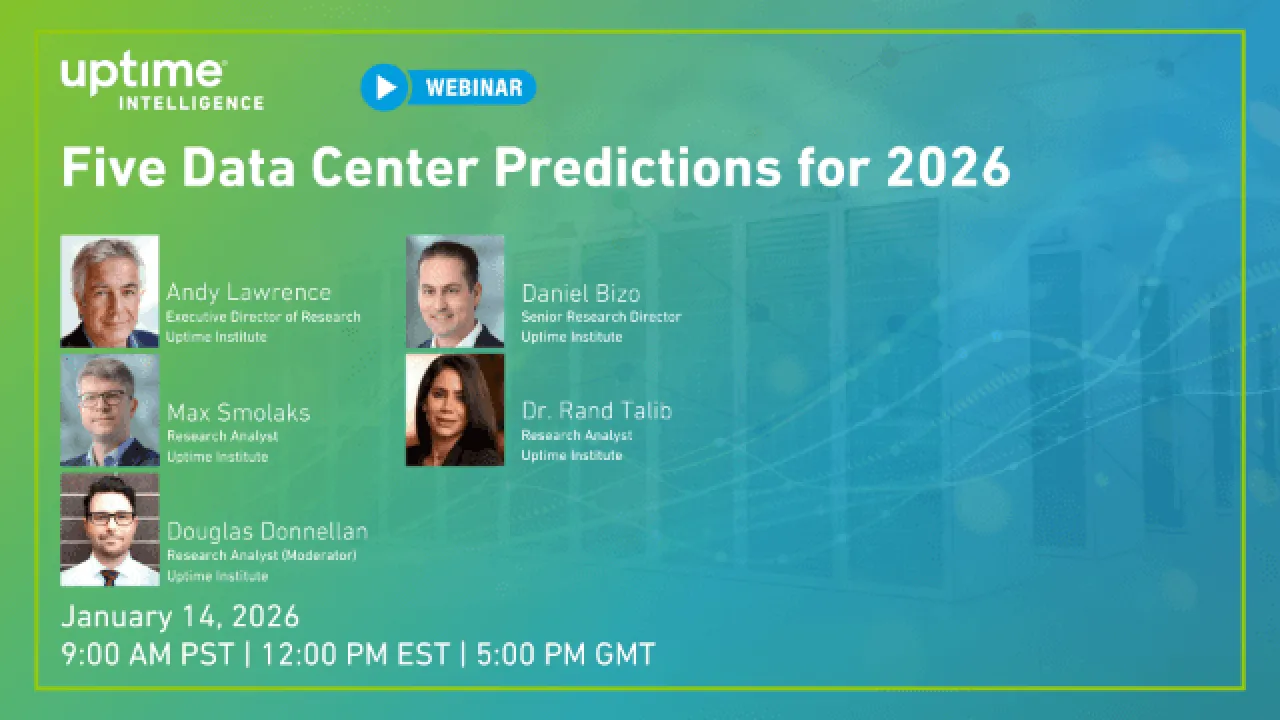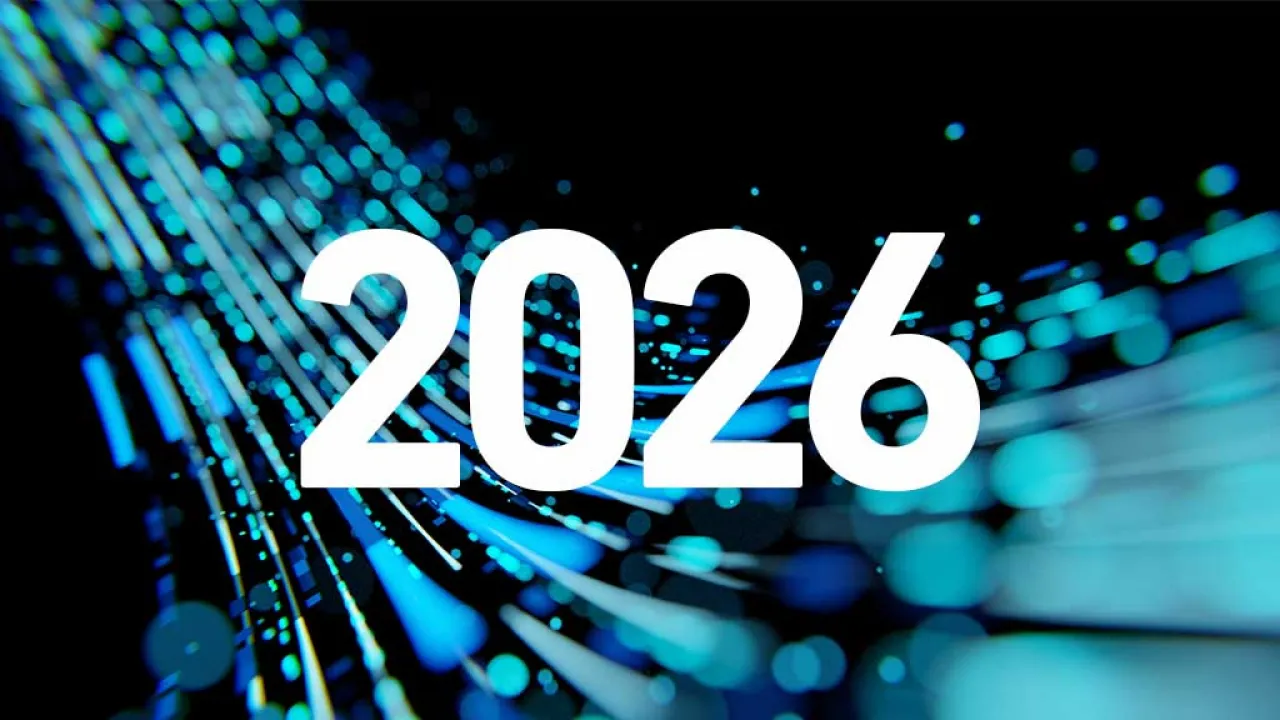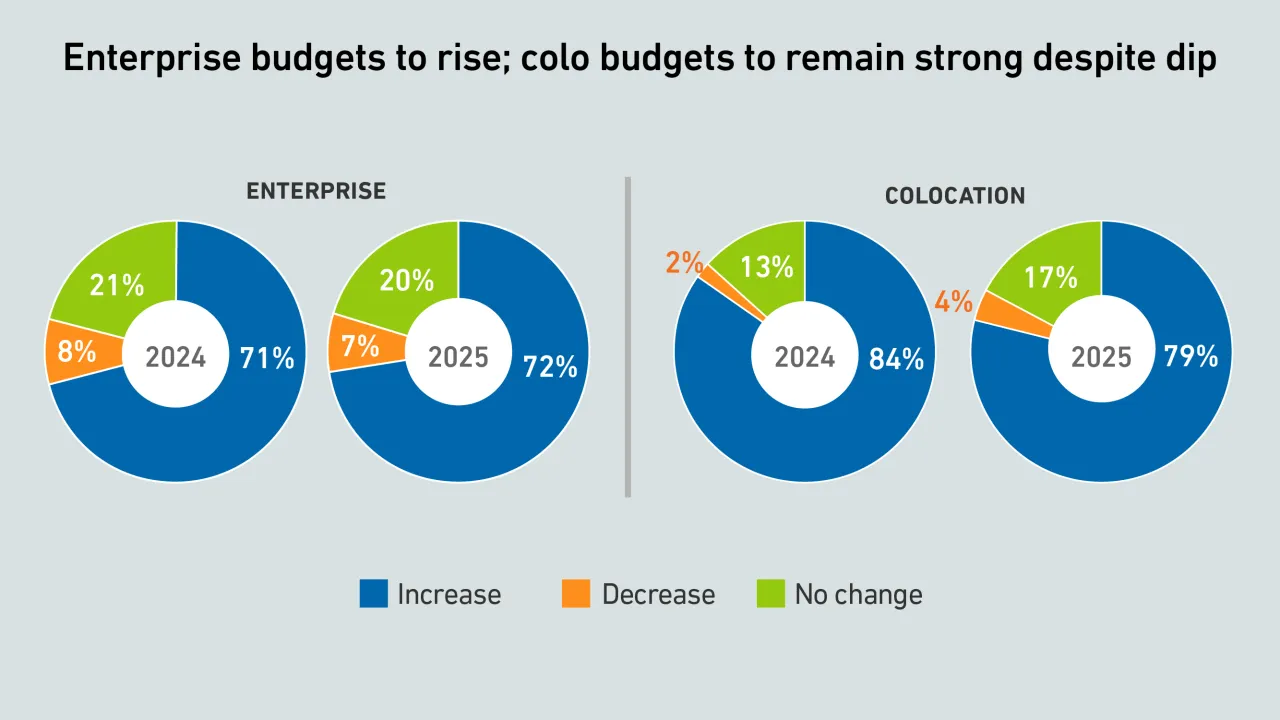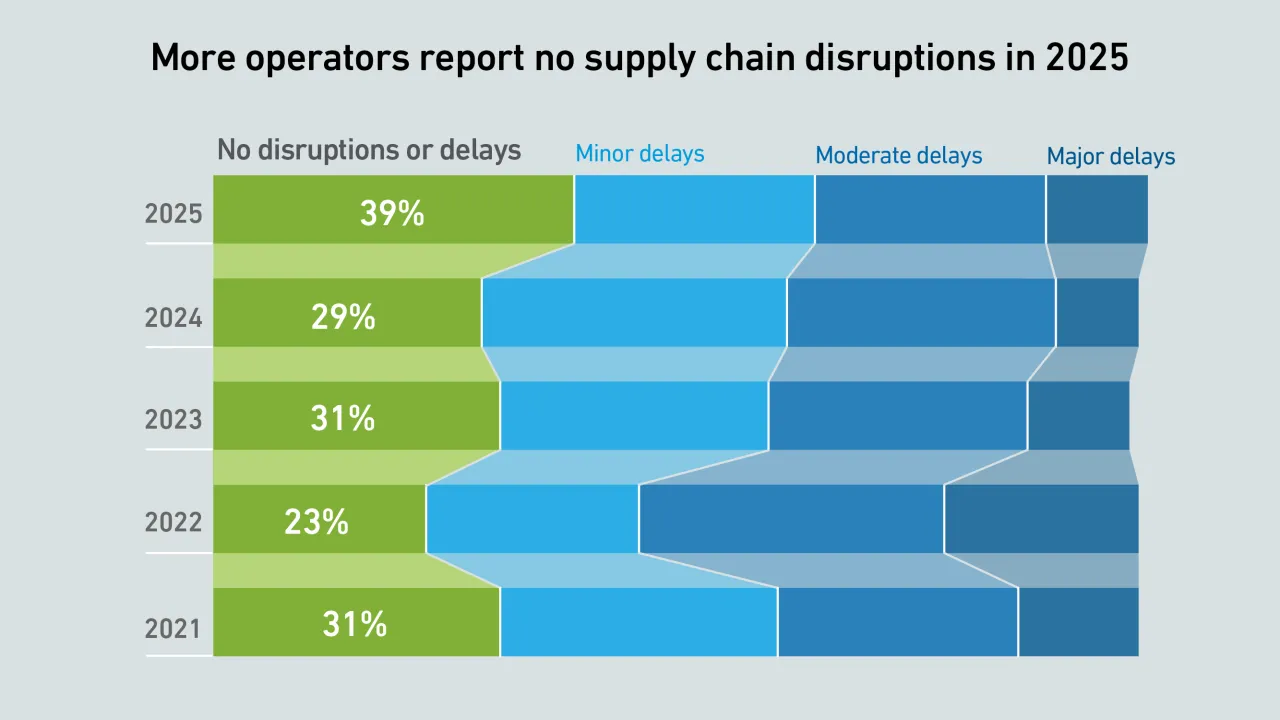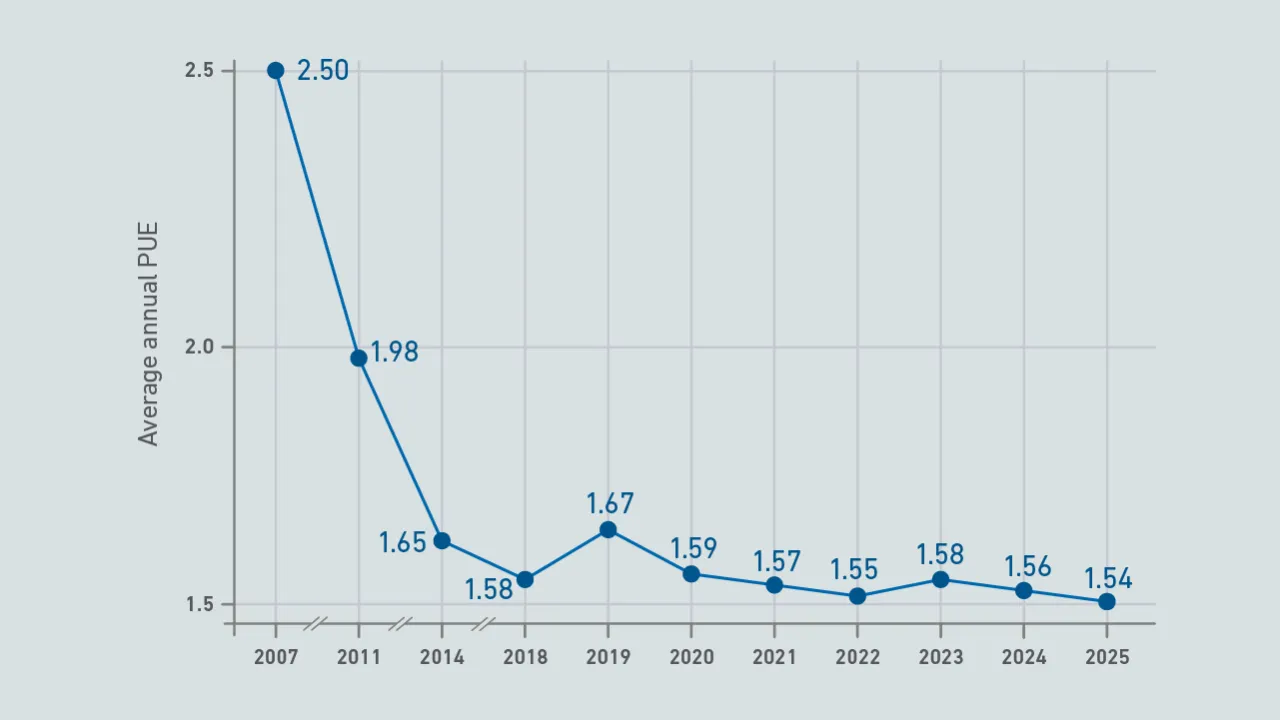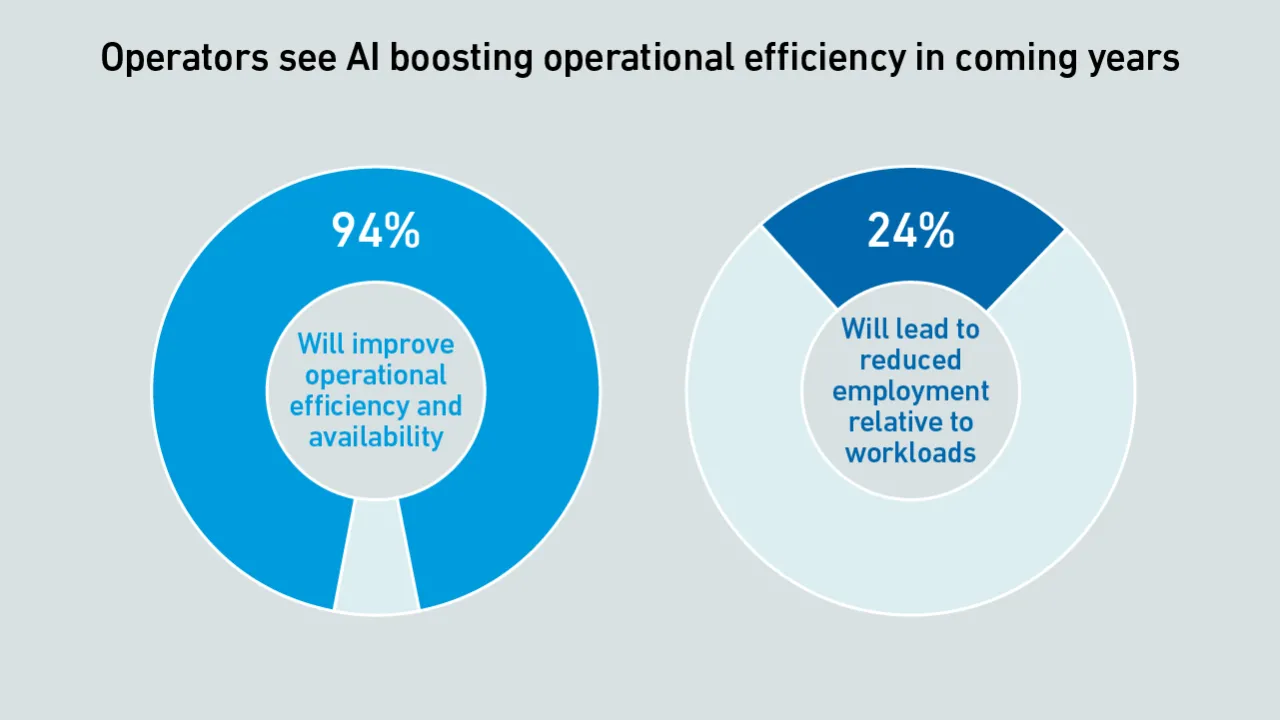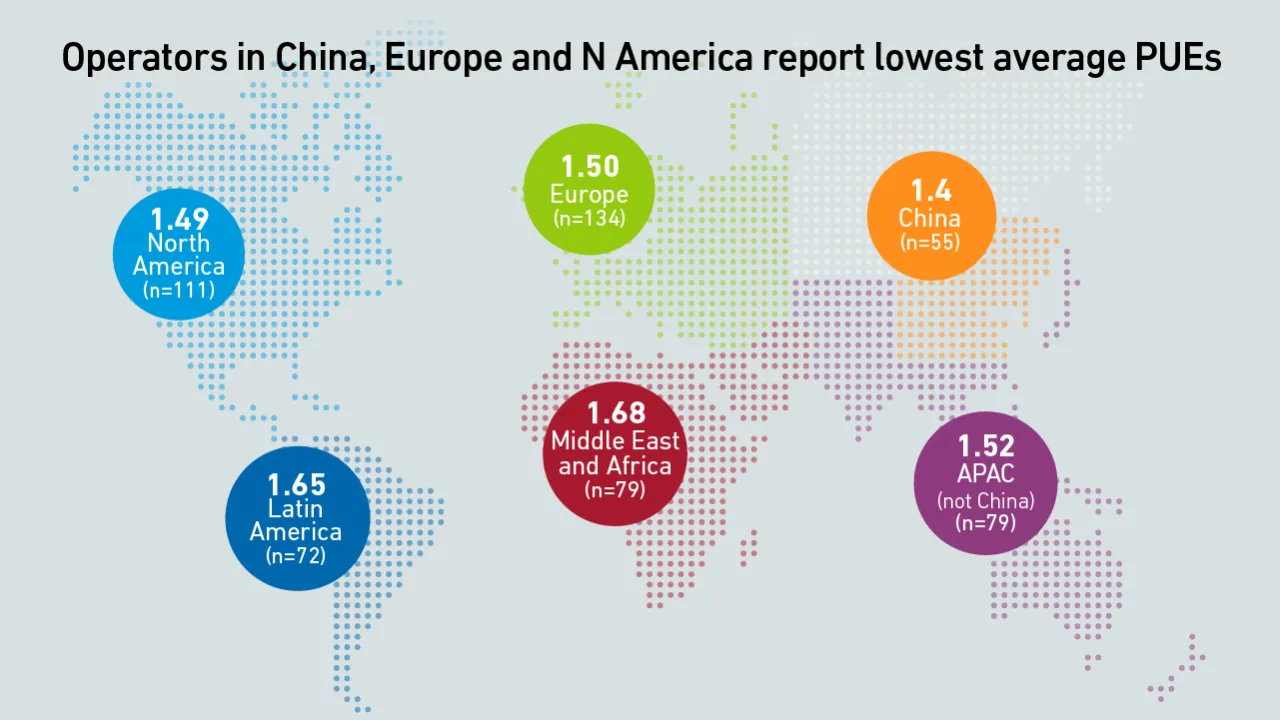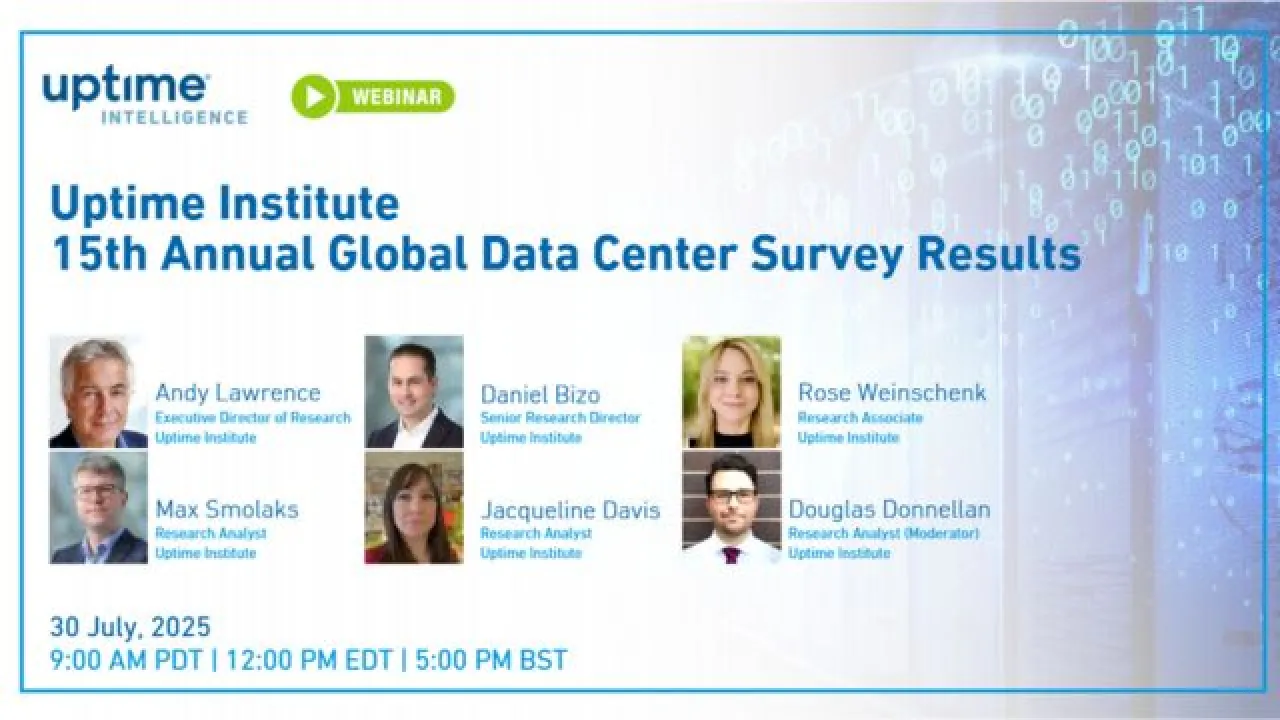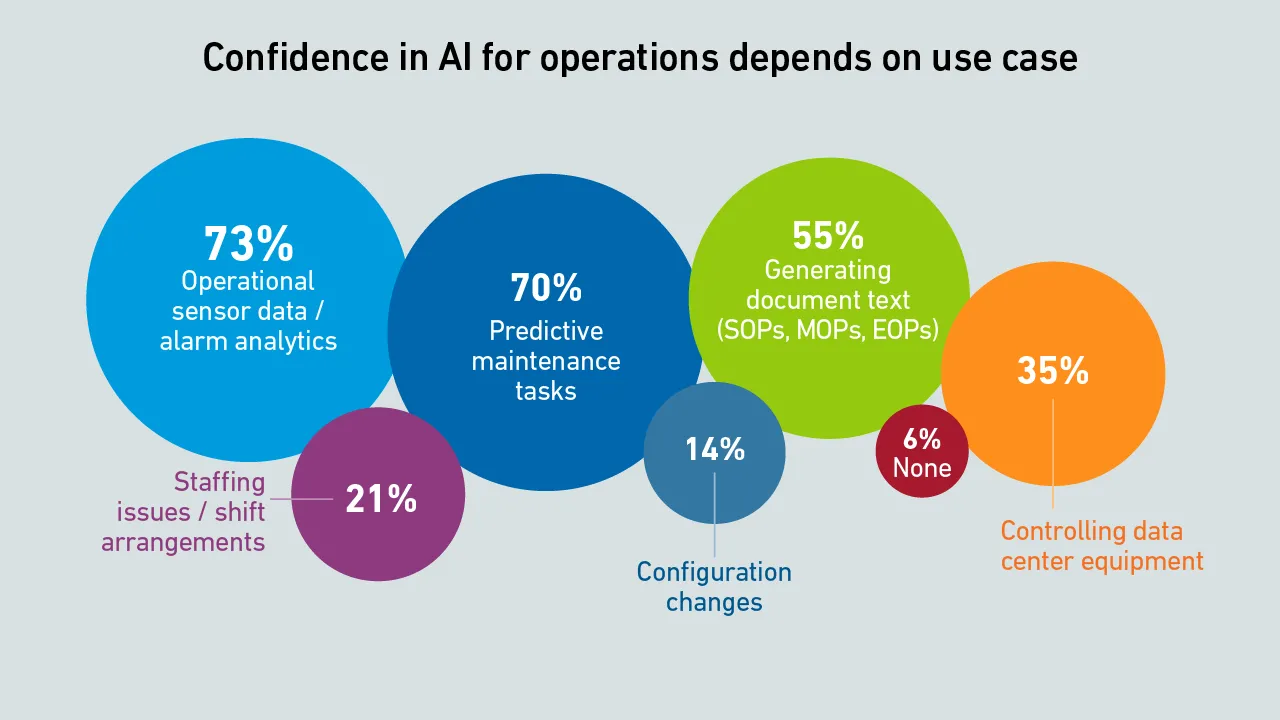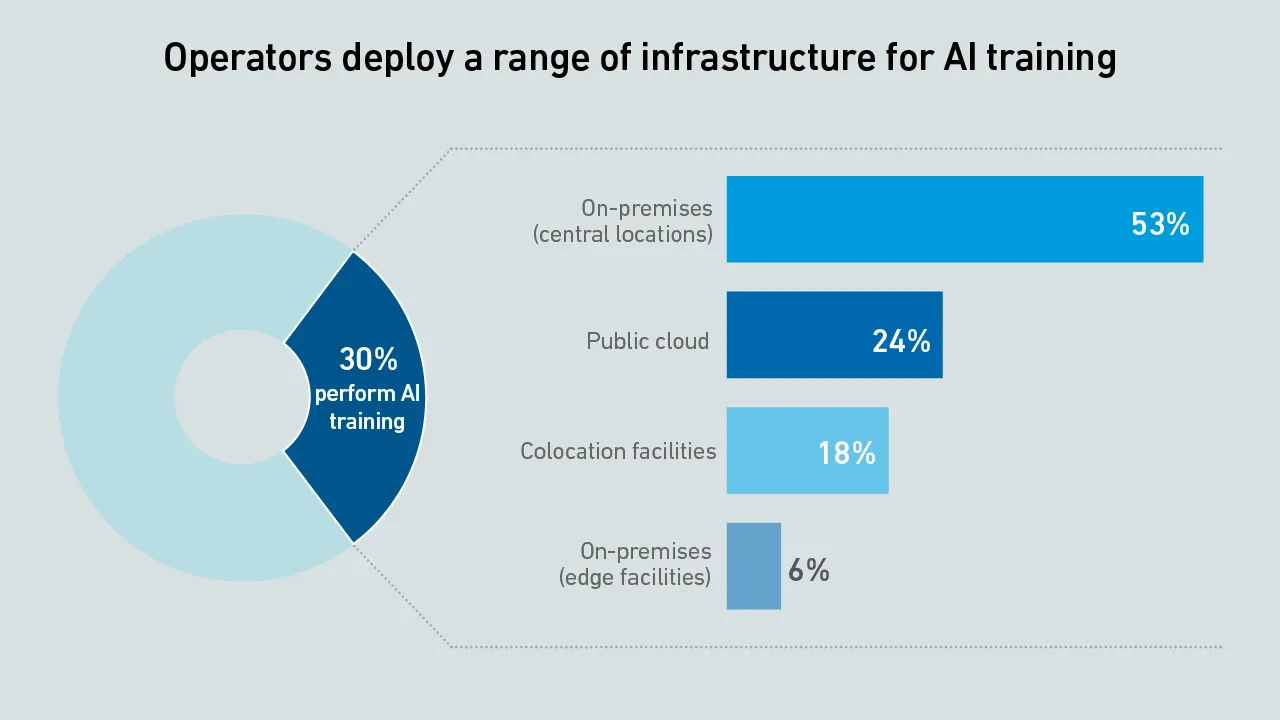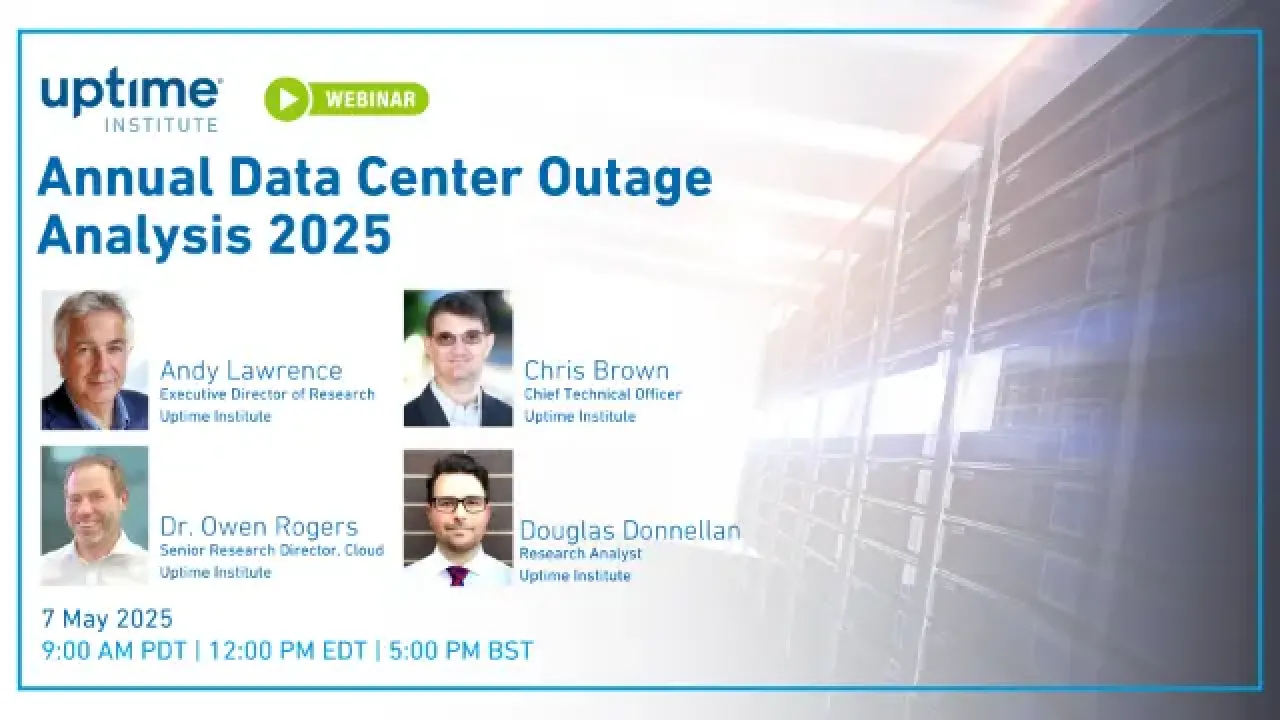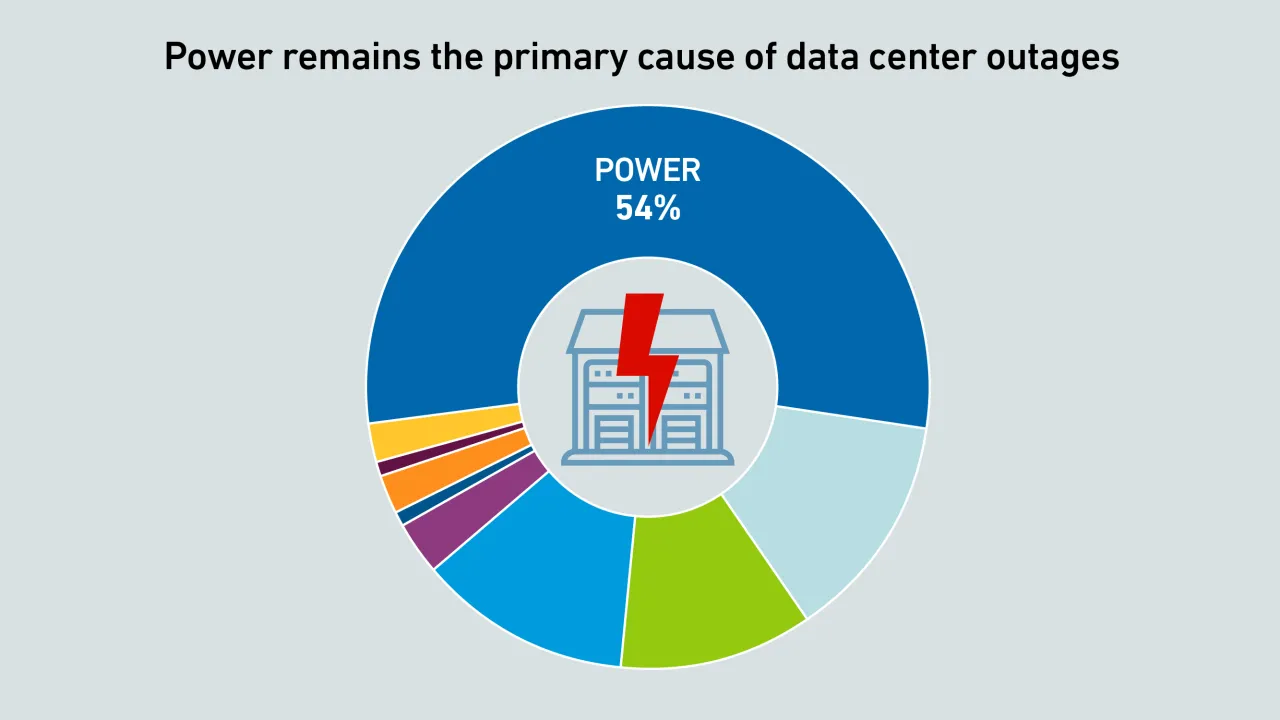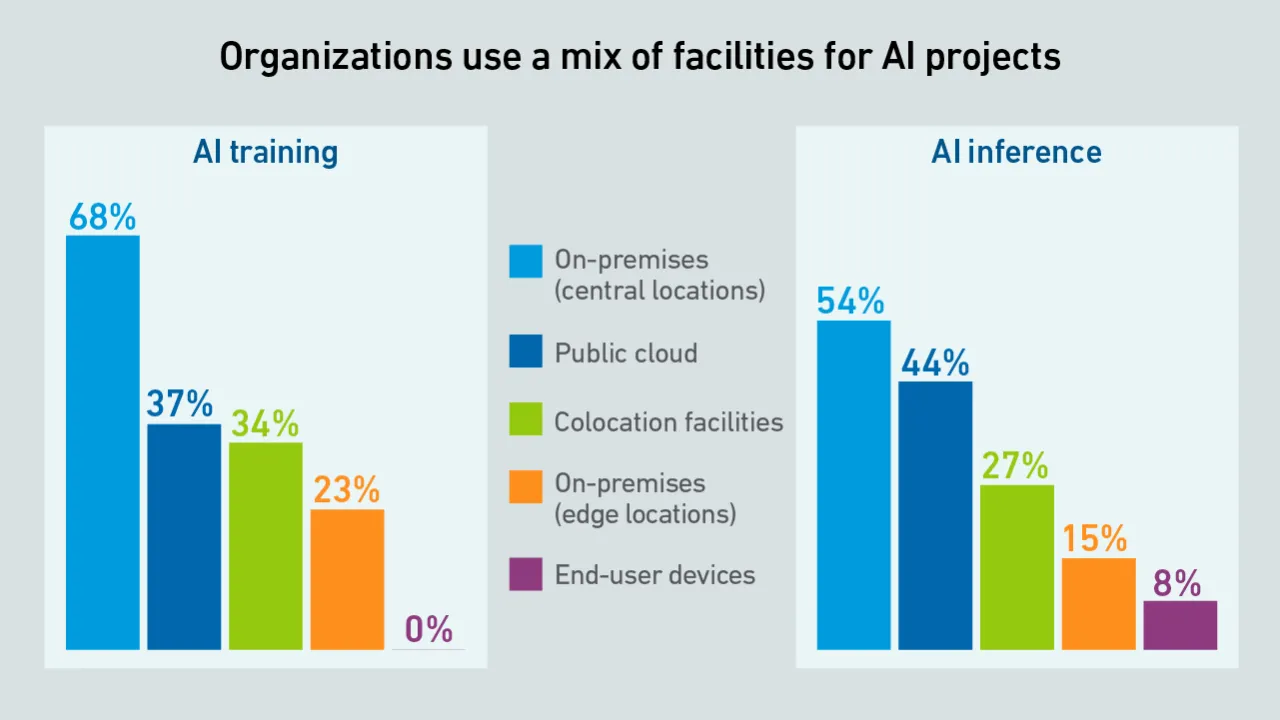In this webinar and report, Uptime Intelligence looks beyond the more obvious trends of 2026 and examines some of the latest developments and challenges shaping the industry. AI is transforming data center strategies, but its impact remains uneven…

Douglas Donnellan
Douglas is a Research Analyst at Uptime Institute covering sustainability in data centers. His background includes environmental research and communications, with a strong focus on education.
ddonnellan@uptimeinstitute.com
Latest Research
Uptime Intelligence looks beyond the more obvious trends of 2026 and examines some of the latest developments and challenges shaping the data center industry.
The Uptime Intelligence research agenda includes a list of published and planned data center research reports for 2026, focusing on: AI workloads, power, cooling, sustainability, resiliency, operations, staffing, and security.
Enterprise and colocation operators continue to invest in growth heading into 2026. However, survey results suggest that strategies for balancing IT, capacity and workforce spending will diverge in the year ahead.
Operators report fewer supply chain disruptions in 2025, but delays remain common. Access to key equipment and progress on capital projects still vary by region and segment, even as demand continues to add pressure.
This report analyzes facility-level PUE data from the Global Data Center Survey 2025, highlighting differences by region, facility size and age. It assesses the vulnerability of the industry to PUE minimum performance standards.
This report highlights results from vendor, consultant and product supplier respondents to the Uptime Institute Global Data Center Survey 2025. It provides an insight into the spending strategies, technology adoption and issues facing their customer.
This report provides a regional view of the results from the Uptime Institute Global Data Center Survey 2025 and highlights some of the different challenges and strategies of data center owners and operators across the globe.
The Uptime Institute Global Data Center Survey, now in its 15th year, is the most comprehensive and longest-running study of its kind. The findings in this report highlight the practices and experiences of data center owners and operators in the…
The 15th edition of the Uptime Institute Global Data Center Survey highlights the experiences and strategies of data center owners and operators in the areas of resiliency, sustainability, efficiency, staffing, cloud and AI.
AI training can strain power distribution systems and shorten hardware life - especially in data centers not built for dynamic workloads. Many operators may be underestimating these risks during design and capacity planning.
Preventing outages continues to be a central focus for data center owners and operators. While infrastructure design and resiliency frameworks have improved in many cases, the complexity of modern architectures continues to present new risks that…
The prevention of outages has always been a top priority for data center owners and operators - but outages do occur. This report analyzes recent Uptime Institute data on IT and data center outages: their causes, costs and consequences.
Under the EU's Digital Operational Resilience Act (DORA), data centers designated as "critical" for their role in financial services will face direct regulatory oversight and new resiliency requirements.
Organizations currently performing AI training and inference leverage resources from a mix of facilities. However, most prioritize on-premises data centers, driven by data sovereignty needs and access to hardware.
